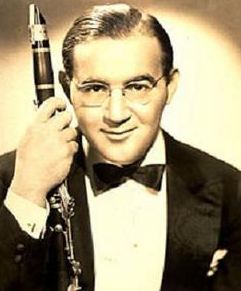Say Cheese!
Edwin Herbert Land (1909-1991) was born in Connecticut, the son of a Russian-Jewish immigrant father. From a young age he loved taking things apart, and dreamed of inventions. He went to Harvard to study chemistry but left after just a few months. Land moved to New York, and there invented a filter that could polarize light. He returned to Harvard and spent three more years there, but once again dropped out, this time to start a company with his physics instructor, who came from a wealthy family and could provide the funds for Land’s work. Land first applied his filter technology to glasses, and invented polarized sunglasses. His technology spread rapidly, and was used in 3D movie glasses, LCD screens, windows, headlights and windshields. As the company grew larger, he renamed it the Polaroid Corporation in 1937. During World War II, Land focused his attention on military technology to assist the war effort. He helped develop some of the earliest night-vision goggles, smart bombs and heat-seeking bombs, as well as the Vectograph, which allows soldiers to identify camouflaged enemy troops. Land’s most famous invention would come after the war, when he put his mind towards making a camera that would generate a photograph immediately. Thus was born the instant camera, also known as a Polaroid camera, and originally called the Land Camera. Madly popular, the camera made Polaroid world-famous, and the “darling of Wall Street”. Land continued to assist the military and the government during the Cold War, spearheading the U2 spy plane, balloon cameras, satellite cameras, and various espionage technology. He was a regular adviser to American presidents. Land remained a scientist his whole life, running experiments daily. A true visionary, when he had an idea he wouldn’t rest until he could materialize it; he would often have to be reminded to eat, and once wore the same clothes for 18 days straight. Land was also a humanist and proponent of social justice, giving priority to hire women and African-Americans in his labs, at a time when it was highly unpopular to do so. He was beloved by the people and the press, won a long list of awards (including the Medal of Freedom), and was inducted into the National Inventors Hall of Fame. His original polarizer invention was said to be “the most significant invention in the field of optics, certainly within the last generation, probably in the last century.” He finally earned an honourary degree from Harvard in 1957.
Words of the Week
Our young people, for the most part – unless they are geniuses – after a very short time in college give up any hope of being individually great. They plan, instead, to be good. They plan to be effective. They plan to do their job… It has become our habit, therefore, to think that the age of greatness has passed, that the age of the great man is gone… But I submit to you that when in each man the dream of personal greatness dies, democracy loses the real source of its future strength.
– Edwin Land



